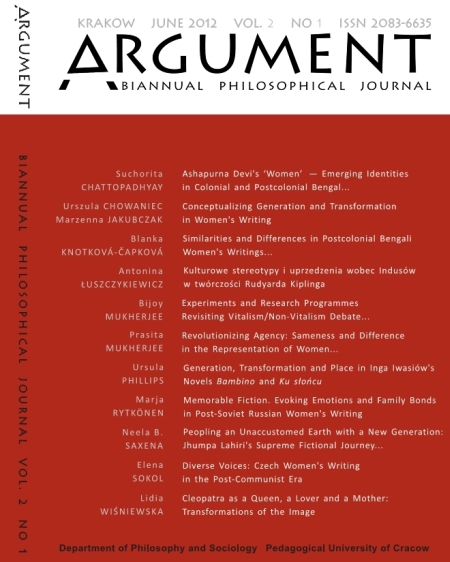Experiments and Research Programmes. Revisiting Vitalism/Non-Vitalism Debate in Early Twentieth Century
Słowa kluczowe:
Jagadish Chandra Bose, realism, theory change, research programme, hardcore, progress, vitalism, nervous mechanism of plants, Sāṃkhya / Sankhya, reformed Vedānta / VedantaAbstrakt
Debates in the philosophy of science typically take place around issues such as realism and theory change. Recently, the debate has been reformulated to bring in the role of experiments in the context of theory change. As regards realism, Ian Hacking’s contribution has been to introduce ‘intervention’ as the basis of realism. He also proposed, following Imre Lakatos, to replace the issue of truth with progress and rationality. In this context we examine the case of the vitalism — reductionism debate in biology inspired by the works of Indian physicist-turned-biologist Jagadish Chandra Bose (1858-1937), in the early twentieth century. Both camps had their characteristic hardcores. Vitalists led by John S. Burdon-Sanderson and Augustus D. Waller accepted religious metaphysics to support their research programme, which ultimately degenerated. Bose worked more with the ideals of science such as Occam’s razor, large-scale systematization of phenomena and novel prediction. I argue that his religious metaphysics, instead of acting as a protective shield, helped him to consolidate his position and allowed further problem shift resulting in a research programme that involved consciousness too. His research programme remains relevant even today.


